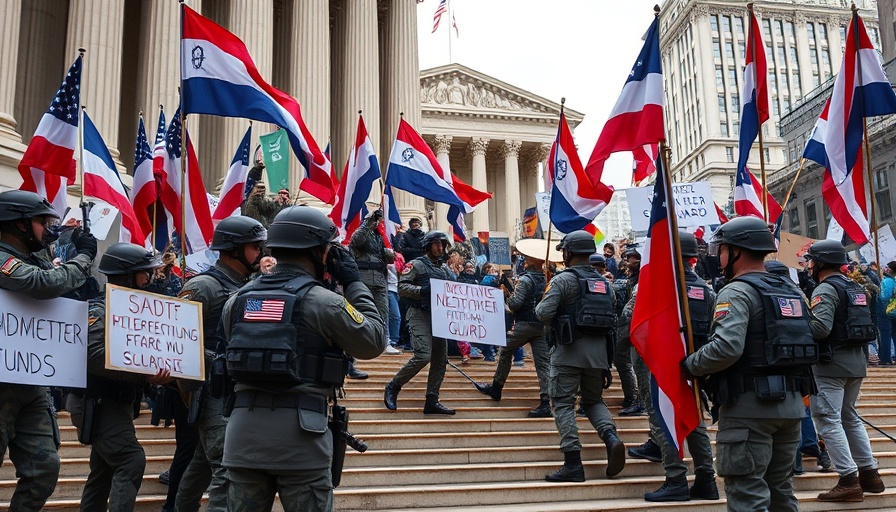
Introduction: The National Guard's Role in Domestic Protests
The deployment of the National Guard in the U.S. is often a contentious topic, especially in times of civil unrest. Most recently, President Trump's justification for sending troops to Los Angeles has sparked significant debate among legal experts, community leaders, and the general public. With ongoing protests against Immigration and Customs Enforcement (ICE), the question arises: Does the president hold the legal authority to utilize the National Guard, and what implications does this have for civil rights and public safety?
Understanding Presidential Authority and the National Guard
In his memo, President Trump referred to Title 10 of the U.S. Code. This statute allows the president to call upon a state's National Guard in cases deemed as “danger of a rebellion” against federal authority. Trump classified the protests against ICE as a form of rebellion, a claim that has been widely disputed by legal scholars. Georgetown University law professor David Cole emphasized that “This is obviously not rebellion. This is a protest. People going out into the streets because they don't like what the government is doing.” Such sentiments underline the ongoing debate about the appropriate use of military force in civilian matters.
The Debate Around What Constitutes a 'Rebellion'
While multiple experts assert that the president's justification is weak, defining what qualifies as a rebellion remains complex. Professor Chris Mirasola from the University of Houston pointed out the lack of a clear statutory definition in the laws governing presidential military authority in domestic situations. He states, “There is no provision, no section of this statute that provides a definition of rebellion.” This vagueness adds to the uncertainty surrounding the use of federal troops in local protests and could lead to potential abuses of power.
Political Ramifications: Lawsuits and Public Response
The reaction to President Trump's decision has not been limited to legal opinions. California's attorney general and governor have taken legal action against the White House. Attorney General Rob Bonta criticized the president's actions, stating, “There is no rebellion. The President is trying to manufacture chaos and crisis on the ground for his own political ends.” This lawsuit highlights the broader implications of military deployment in politically charged situations, raising questions about civil liberties and governmental overreach.
Historical Context: Past Uses of the National Guard
The deployment of the National Guard has a long and storied history in the U.S., traditionally utilized during times of crisis or civil unrest. Recent instances of such deployments include the Black Lives Matter protests and various responses to natural disasters. However, the context of each deployment plays a significant role in shaping public perception. Understanding when and why these troops are activated is critical to evaluating their impact on the community and how they affect citizens' rights.
Future Outlook: Potential Changes in Military Deployment Policy
The current climate suggests that the conversation surrounding the deployment of the National Guard is only set to intensify. As civil protests continue and public sentiment evolves, there may be calls for clearer guidelines establishing the limits of presidential authority in domestic situations. Discussions may lead to reforms that clarify what constitutes a justified use of military force, ensuring that the rights of citizens remain a priority.
Conclusion: The Need for Transparency and Accountability
The heated dialogue surrounding President Trump's use of the National Guard underscores an urgent need for transparency in governmental practices. The actions of the federal government must be scrutinized carefully to uphold democratic principles and protect civil rights. Moving forward, the implications of these discussions will shape not only the future of civil discourse in America but also the relationship between citizens and their government.
In light of ongoing debates and potential reforms regarding the National Guard's deployment, it's crucial for communities to remain engaged and informed. Knowing your rights and understanding legal frameworks can empower citizens to navigate these complex issues effectively.
 Add Row
Add Row  Add
Add 




 Add Row
Add Row  Add
Add 








Write A Comment